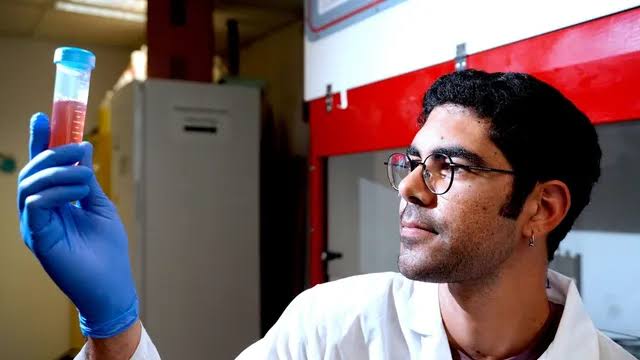
Tel Aviv [Israel]: Israeli researchers have developed a revolutionary method of preserving natural produce involving sound waves and edible nanoparticles. The process is eco-friendly, holds the promise of significantly extending the shelf life of fruits and vegetables, and also bypasses the need for traditional chemical preservatives and additives.
From the moment produce is harvested till the time it is eaten, fruits and vegetables undergo a natural decay process, necessitating specific preservation methods to ward off pollutants and bacteria.
Addressing this challenge and inspired by his family’s strawberry nursery in the Golan, Bilal Abu-Salha, a PhD student at Bar-Ilan University in Ramat Gan, embarked on a mission to enhance the longevity of fresh produce.
His innovation is based on sonochemistry, the study of the effects of ultrasound waves on chemical systems.
“The method I developed allows the use of sound waves, in a process called sonication, to develop a nanoparticle coating from the substance chitosan,” Abu-Salha explained.
“The chitosan coating imparts antibacterial properties to the surface of the strawberries because they have a larger surface area and a higher affinity for the bacterial cells, and so basically I extended the shelf life of the fresh strawberries in cold storage.”
is a natural substance derived from polymers such as chitin, polysaccharides and proteins. More importantly, Abu-Salha stressed, it is environmentally friendly and decomposes naturally.
Professor Aharon Gedanken, co-developer of the sonication method, explained that when a liquid solution is bombarded with high-frequency sound waves, microscopic bubbles form and collapse rapidly, generating streams that propel particles onto solid surfaces. This phenomenon enables the incorporation of desired properties, such as antibacterial effects, into fruits and vegetables.
Abu-Salha’s research involved subjecting the chitosan solution to sonochemical processes, resulting in the creation of edible nanoparticles with antibacterial properties, which were then applied to strawberries. Extensive testing of the strawberries’ sugar and acidity levels, decay rates, and other properties, found that the nanoparticles extended their shelf life by up to 15 days.
The incident at Billie Eilish’s Arizona concert has reignited debate about fan behaviour and safety…
A witness describes the unforgettable and traumatic moments surrounding Liam Payne’s tragic fall in Buenos…
Fights erupt in the VIP lounge as over 12,000 fans witness chaos during Karan Aujla’s…
Fans to get a special glimpse of Salman Khan’s much-anticipated film ‘Sikandar’ on December 27,…
Nikita’s daily location changes, WhatsApp calls, and legal manoeuvres failed as police tracked her down…
The district administration aims to make the city “beggar-free” under a central rehabilitation project. Deember…